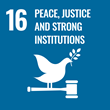GAČR
Party Euroscepticism in times of crisis

The research focuses on Euroscepticism in Central and Eastern European countries during the numerous crises that Europe has faced in recent times, the 2008 financial crisis, the 2015 migration crisis and especially the current pandemic crisis. The main research objective is to identify the type and manifestation of Euroscepticism prevailing during and after the COVID-19 crisis and to compare it with the trends of Central European Euroscepticism responses to previous crises. The comparative framework will include the Czech Republic, Hungary, Poland and Slovakia. The analysis will focus on partisan Euroscepticism. The research will pay specific attention to explaining the relationship between Euroscepticism and tendencies towards illiberal democracy in contemporary Central European politics, both by analysing and comparing empirical findings and as a theory of the relationship between the concepts of Euroscepticism and illiberal democracy.
Project information
Party Euroscepticism in times of crisis

- Project Identification
- GA22-15856S
- Project Period
- 1/2022 - 12/2024
- Investor / Pogramme / Project type
-
Czech Science Foundation
- Standard Projects
- MU Faculty or unit
- Faculty of Social Studies
The research focuses on Euroscepticism in Central and Eastern European countries during the numerous crises that Europe has faced in recent times, the 2008 financial crisis, the 2015 migration crisis and especially the current pandemic crisis. The main research objective is to identify the type and manifestation of Euroscepticism prevailing during and after the COVID-19 crisis and to compare it with the trends of Central European Euroscepticism responses to previous crises. The comparative framework will include the Czech Republic, Hungary, Poland and Slovakia. The analysis will focus on partisan Euroscepticism. The research will pay specific attention to explaining the relationship between Euroscepticism and tendencies towards illiberal democracy in contemporary Central European politics, both by analysing and comparing empirical findings and as a theory of the relationship between the concepts of Euroscepticism and illiberal democracy.
Sustainable Development Goals
Masaryk University is committed to the UN Sustainable Development Goals, which aim to improve the conditions and quality of life on our planet by 2030.
Publications
Total number of publications: 9
2024
-
Breaching the EU governance by decompression
Journal of European Integration, year: 2024, volume: 46, edition: 3, DOI
-
Eurosceptic narratives in the age of COVID-19 : the Central European states in focus
East European Politics, year: 2024, volume: 40, edition: 1, DOI
-
Where Have All the ‘Exiters’ Gone? Contextualising the Concept of Hard Euroscepticism
Journal of Common Market Studies, year: 2024, DOI
2023
-
An Unorthodox Euro-federalist : Miloš Zeman’s Changing Discourse on European Integration
Acta Politologica, year: 2023, volume: 15, edition: 3, DOI
-
Drivers of domestic politicisation of European issues : explaining low politicisation of differentiated integration in Czechia
Journal of Contemporary European Studies, year: 2023, volume: 31, edition: 3, DOI
-
Exiting the European Union : A New Temptation for East-Central European Hard Eurosceptics
Year: 2023, type: Appeared in Conference without Proceedings
-
Linking European Integration with Illiberalism : ‘Laboratory’ of Central‑Eastern Europe
Politics in Central Europe, year: 2023, volume: 19, edition: 2, DOI
2022
-
Breaching the EU Governance by Decompression
Year: 2022, type: Appeared in Conference without Proceedings
-
Coronavirus as a source of Eurosceptic narratives: Evidence from Central Eastern Europe
Year: 2022, type: Appeared in Conference without Proceedings
